|
I am not generally a big fan of church apologies to LGBTIQ+ folk - as (like many apologies to First Nations peoples) they are so easily ‘cheap grace’, and lack meaningful reparations and active repentance (which you’d think would be basic for Jesus followers). However, where there is a genuine attempt to LIVE Apology out - what queer UCA leaders call a ‘Living Apology’, with clear intent and steps (sadly something the UCA is still dragging its feet on) - this is something some us can at least work with, even where our full dignity is simply not negotiable. I’m pleased therefore by what I believe is a genuine step forward by my former Anglican diocese in the diocesan Apology issued by its Synod this week. Whilst I’d like to see what the next steps are - beyond a welcome promised major event with the Archbishop - this has been part of a reconciling process which has invited queer folk like me to contribute and has been led by Anglican leaders like the Dean of Brisbane who are truly affirming. I therefore thank my wonderful church siblings in Southern Queensland warmly for all they have done and continue to do and pray that this may continue to bear living fruit (even with the current limits and pressures set by other Anglicans in Sydney-style).
The text of the Apology is below...
0 Comments
Wonderful to meet up with some of the heroes of the conversion therapy and orientation change struggle last night before the historic passing of NSW legislation. With the particular hard work of Warren Talbot, Pitt Street Uniting Church was able to support the final stages of campaigning by organising a public letter, signed by 36 Uniting Church clergy, to the Premier and members of the NSW Parliament. At last, we have legislation in NSW, which may even be improved in practice over time, to help stop the scandalous spiritual abuse of so many people’s lives (and queer as a whole, despite the lazy headline!). Thankyou to everyone who has fought so long and hard for this - I know how costly it has been for so many. Now, as on child abuse, may religious bodies as a whole start actively cooperate and return to paths of owning deep truths, nurturing healing, and enriching all our lives.
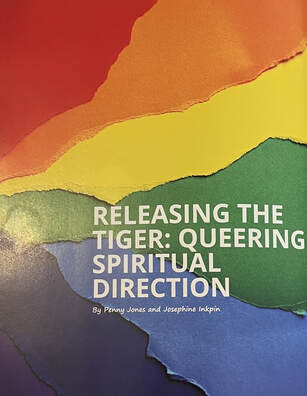 This paper (by the Revd Penny Jones and myself) was originally published in Coolamon, Issue 7 March 2023, the journal of the Australian Network for Spiritual Direction). It can be downloaded here. It explores some ways in which LGBTQ+ people contribute to our changing experience of God and reveal paths of enriching spiritual transformation. For sexual and gender identities have been at the heart of some significant recent features of both spiritual growth and conflict. From the late 1960s,1 lesbian, gay, bisexual, transgender and questioning (LGBTQ) 2, or queer3 people have formed increasingly effective social and political movements, transforming many cultural, legal and philosophical norms across the world. For many, this has also involved deliberate or unconscious spiritual expression. Progress has however been uneven, across time and space, and traditional religious formations and spiritual norms have been particular obstacles. Differing, and sometimes conflicting, conceptions of queer people and their gifts are therefore inevitably present within the spiritual direction space. Deeper exploration of these, and the underlying lived spiritual experience of queer people, is thus vital for the further flourishing of all involved. Indeed, whilst aspects may be challenging for some, the authors of this paper affirm that queer spiritual experience and understanding offers gifts which provide renewing insights for spiritual direction practice as a whole. Without unduly entering into wider controversies over sexuality and gender, this paper therefore suggests some life-giving ways to engage. These include exploring aspects of “queer virtues” identified by queer spiritual theologians and the metaphors of “coming out” and “transition” as embodiments of the paschal mystery and healthy, holy, transformation... 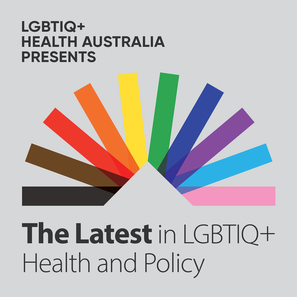 It was good to share recently on The Latest in LGBTIQ+ Health and Policy - a podcast that brings the health and wellbeing hot topic discussions that matter to LGBTIQ+ people: Our conversation explored the intersection between faith and LGBTQ+ community, the changes happening within the church, overcoming barriers as a trans woman, and my 30 year relationship with wife Penny.' This podcast was produced by JOY Media – Australia’s Rainbow Community Media Organisation. For more information about JOYs services, visit joy.org.au/services Podcast: Play in new window | Download (Duration: 25:16 — 34.7MB) Subscribe or Follow Us: Apple Podcasts | Google Podcasts | Spotify | RSS Budyeri Gamaruwa – greetings in Gadigal. I acknowledge elders, past and present, and all First Nations people here. For before these steps on which we stand existed, this was Aboriginal land. It is, and always will be, Aboriginal land. For true identity, love and self-determination are not ceded by the oppressions of others. That is at the heart of our simple act of solidarity today.
My name is Josephine McDonnell Inkpin. I am a transgender woman and a queer person of faith. including being Minister here at Pitt Street Uniting Church. So I thank you all for coming this morning. For gender diverse people and queer people of faith are very vulnerable right now. We are not surprised by current attacks. In fact, we trans people have been warning about them for ages, but typically our concerns have given little priority -– just as our calls not to issue a visa to an UK rabble-rouser could have helped avoid Nazis on the streets of Melbourne and feeding right wing forces across the country. Similarly, we queer Christians have called for our voices to be heard properly but, with notable exceptions, many key Christian leaders and some queer people have given little priority to our concerns – just as our calls to help us address the now visible Christian Right in Sydney could have helped avoid the violence on Sydney streets. This - must – change: both for the sake of trans people and queer people of faith and for us all. For an attack on any of us is an attack on all of us. Our attackers think that trans people and queer Christians are easy and weak targets. Well, we are so not weak in spirit, but we are not as strong we could be if we had greater voice and empowerment. This simple solidarity photograph is therefore a declaration of that intent...  I speak as both a transgender woman and as an Anglican priest, currently serving as an Uniting Church Minister. As a Queer Christian I am not alone. There are many of us in Sydney, and across the world. For we, and queer people of other faiths, have always existed. We can be found in the Bible, throughout history, and we are very much alive today. Yet our lives are so commonly denied. For we are an inconvenient truth: inconvenient both to the Christians who oppose us, and inconvenient also to others, including some in the queer community, who would deny our lives. As such, we are at the heart of the continuing culture wars we seek to end today and we share in the solidarity and hope which this gathering embodies. Indeed, without us the battles we face together simply cannot be won. We so need each other and we badly need others to hear our voices and act upon them... As part of both Equal Voices and Pitt Street Uniting Church, it was an immense delight to launch our Queer Faces of Faith photo exhibition - check out the photos and stories online here - at https://www.amplifyqueerfaith.com.au - and/or visit the physical exhibition at Pitt Street Uniting Church in the heart of the city of Sydney from 16 February to 31st March (before it goes on tour!).
The physical exhibition will be accessible during the Sydney World Pride and Mardi Gras festival period 17 February - 5 March (10am-2pm - at least - daily). #AmplifyQueerFaith #QueerFacesOfFaith #QueerAllyFacesOfFaith It was an immense delight, and honour, to meet and share tea, conversation, stories and inspiration with the wonderful Peter de Waal - such a gorgeous person and one of our great LGBTIQ+ elders.
Peter and his equally terrific partner Bon enabled so much over the years, not least the vital public breakthrough with the ABC Chequerboard program in 1972 - including the famous first ‘gay kiss’ on Australian TV. Bon’s subsequent sacking as a church secretary was also but one part of the religious and other repression that then issued, but his and Peter’s willingness to stand up and speak out in those dark days has helped bear such fruit and should continue to empower us today. Watching the original Chequerboard program with Peter was deeply moving, particularly in hearing Bon speak so powerfully (as a then would-be Anglican priest, cruelly treated by his Church - not only in Sydney - which still has to grow up into humanity) reflecting life-giving faith as well as life and identity, and in hearing much more from Peter of accompanying stories, complexity and background. Without heroes like Peter and Bon, some of us would not be here today and certainly where and how we now are. Huge thanks therefore continue to be right and proper (as they say in some liturgies) and I certainly hope we may all meet again. With many thanks again to '78er and fellow Pitt Streeter Meredith Knight for her friendship, inspiration and liaison in bringing us together. It is (sadly) interesting to me that, whilst I am a lifelong Anglican, and one with decades of helping lead Anglican teaching and formation, my mother Church tradition rarely asks me to contribute to ways out of its neurotic obsessions with sexuality and gender, whereas others in other spaces do (‘a prophet is not without honour’ and all that?).
Here is a latest offering, with thanks to The Sisters of the Good Samaritan for the opportunity to offer a brief perspective on how flourishing LGBTIQA+ lives flow out core elements of Catholic wisdom down the centuries - not least in considering family, the Body, natural law, the imago dei, and God’s grace in Creation. For: ‘this is about reclaiming Catholic emphases on the centrality of God’s grace in the diverse expressions of creation and incarnation, rather than imposing false ideas of sin and shame on those who are actually gifts to help lead us into greater life together. LGBTIQA+ people of faith do not need welcome, or inclusion, for we are already at home with God, as family members and part of Christ’s Body, wholly natural, and imaging the divine in our diverse ways. What we do need is space to flourish, and thereby we can enable others to flourish also.’ See link to the article iFlourishing Together' in The Good Oil here - or text below... 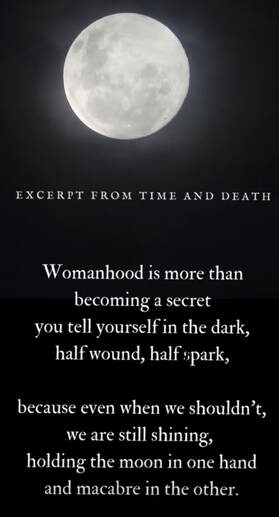 words by Nikita Gill words by Nikita Gill I am praying in the next few days for women in the many denominations of the Church, as some of my dearest Australian Anglican friends gather in Sydney for a Movement for the Ordination of Women gathering to mark the 30th anniversary of Anglican women's ordination in Australia. Due partly to family circumstances, neither Penny not I are attending ourselves. To be honest, we were also quite saddned that our offer of hosting an ecumenical communion service at Pitt Street UC was rejected - leaving the conference with no public female-led Anglican communion, due to Sydney diocese gynophobic policies. We had also hoped that, with such Anglican female sacramental leadership, this might be a way of connecting, celebrating, and empowering women from many traditions. It seemed a creative way of both honouring the more militant character of MOW, without which women would all still be waiting, and also contribute to the vital tasks of intersectional solidarity we need today. However we truly and warmly wish everyone well and hope that it may help renew the continuing work of Christian feminism which remains so vital... |
AuthorJo Inkpin is an Anglican priest serving as Minister of Pitt St Uniting Church in Sydney, a trans woman, theologian & justice activist. These are some of my reflections on life, spirit, and the search for peace, justice & sustainable creation. Archives
July 2024
Categories
All
|

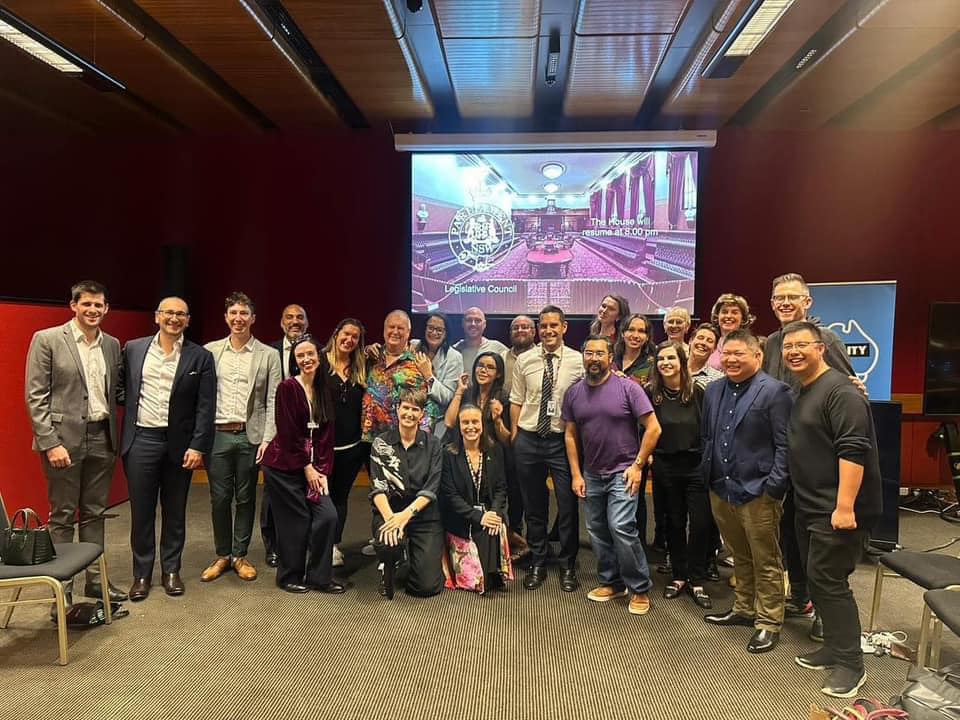
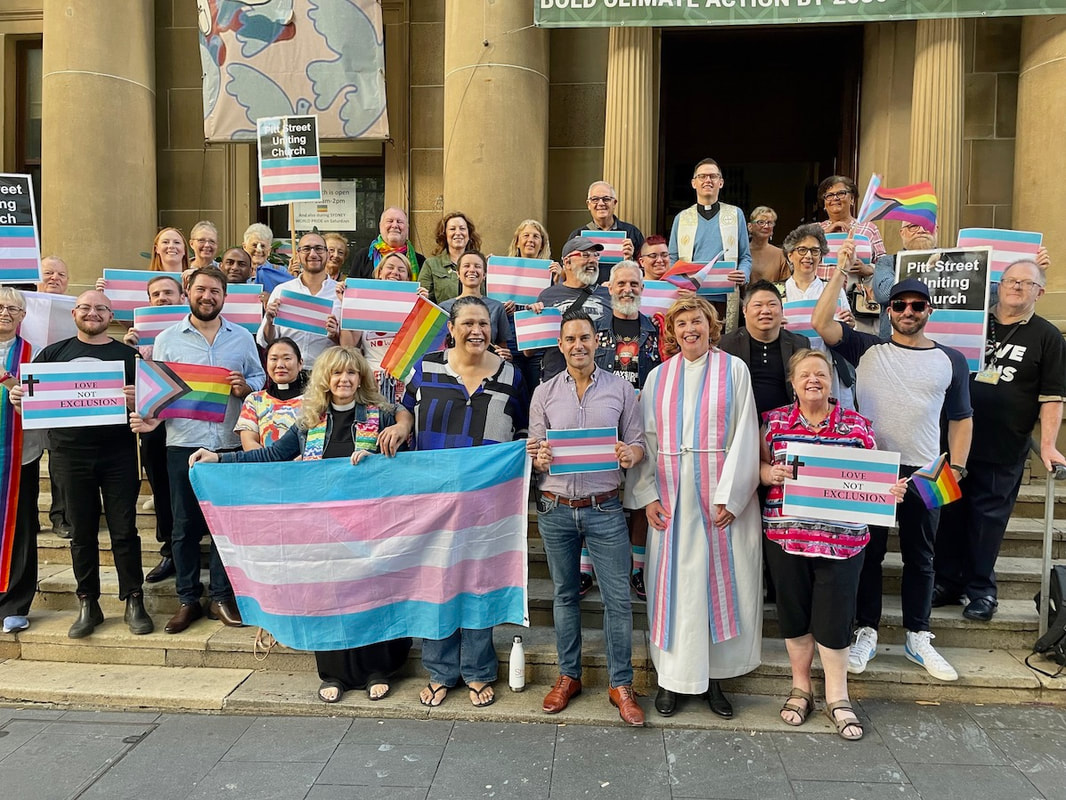
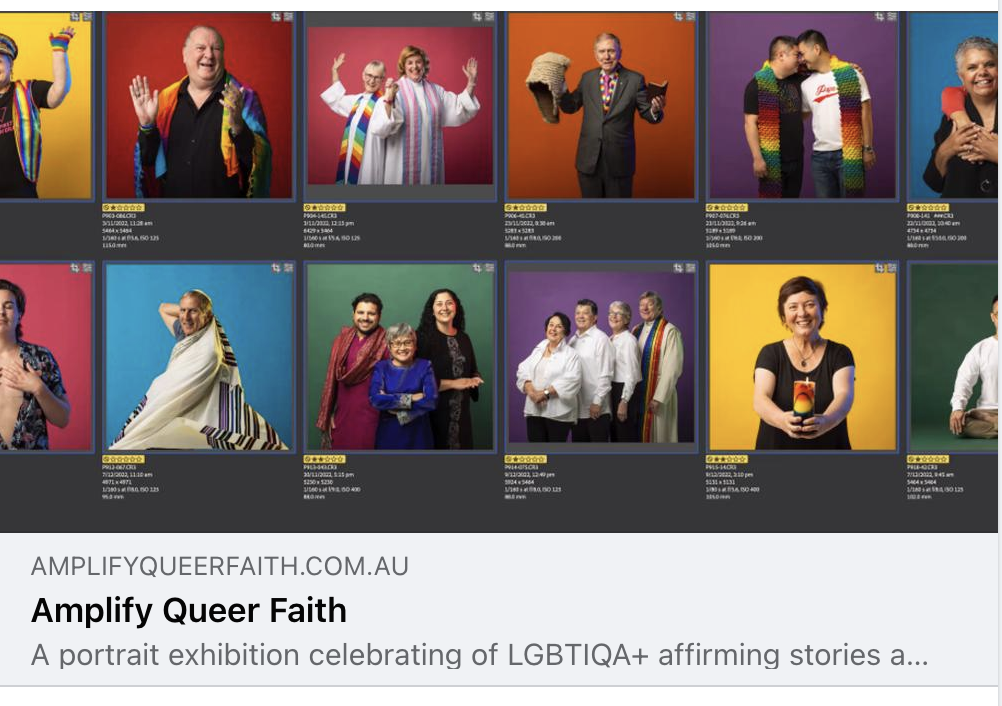
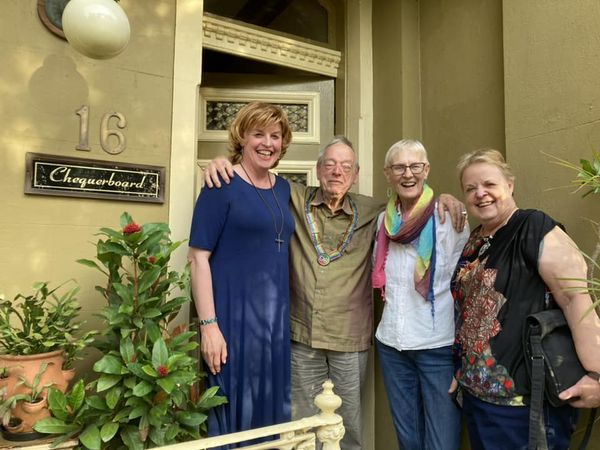

 RSS Feed
RSS Feed